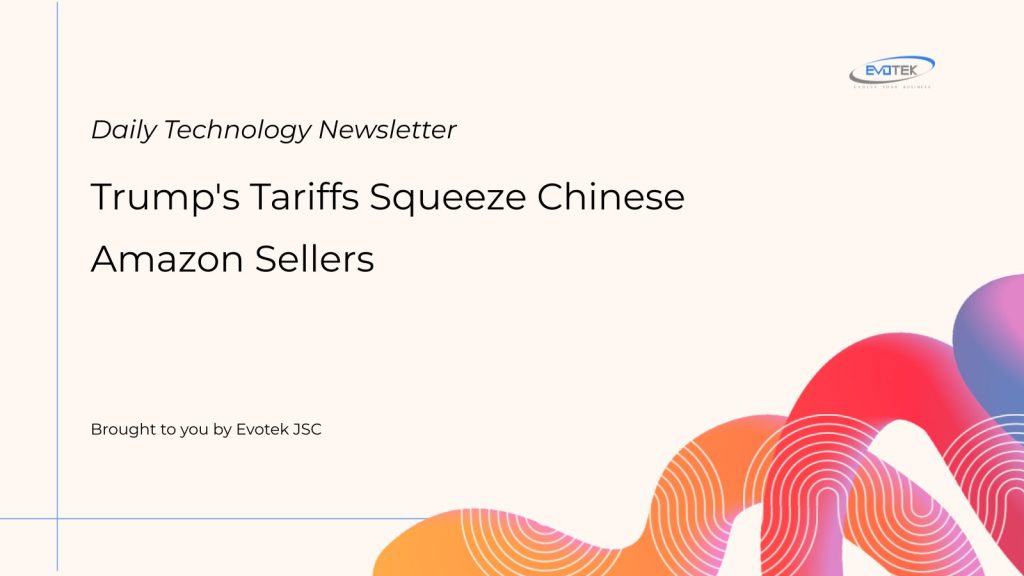New tariffs imposed on Chinese goods by the U.S. are putting immense pressure on Chinese sellers who rely on Amazon’s platform. With duties potentially reaching 125%, these businesses face tough choices: raise prices for American consumers or withdraw from the lucrative U.S. market.
The Impact on E-Commerce
Wang Xin, representing over 3,000 Amazon sellers in Shenzhen, China, describes the tariffs as more than just a tax issue. They fundamentally disrupt the entire cost structure for these businesses. The increased costs are forcing sellers to re-evaluate their strategies.
Difficult Decisions Ahead
Many sellers are finding it incredibly difficult to remain competitive in the U.S. market. Speaking to reporters, some Shenzhen-based sellers indicated they would have to increase prices by as much as 30-50% on some items to maintain margins. Others are considering exiting the U.S. market altogether, shifting their focus to regions like Europe, Canada, and Mexico.
Amazon’s Dependence on Chinese Sellers
China is a major source of Amazon sellers, with Shenzhen alone hosting over 100,000 registered businesses. These sellers generate billions in annual revenue, highlighting the significant role they play in Amazon’s marketplace ecosystem.
Wider Economic Concerns
Beyond the immediate impact on businesses, there are concerns about the potential for increased unemployment in China. The tariffs could lead to a significant contraction in the cross-border e-commerce sector, which handled hundreds of billions of dollars in imports and exports last year.
The End of De Minimis
The end of the de minimis exemption, which previously allowed items under $800 to be imported without duties, further compounds the problem. Platforms like Shein and Temu, known for their low-priced goods, will be significantly affected. These shipments will now face substantial duty rates, further eroding their price advantage.
Winners and Losers
While Chinese sellers face challenges, some American companies see an opportunity. Forever 21, for example, has previously blamed duty-free exemptions on low-cost Chinese imports for contributing to their decline, suggesting that the new tariffs could level the playing field.
In conclusion, the tariffs are reshaping the e-commerce landscape, forcing difficult decisions and potentially triggering wider economic consequences. The situation is fluid, and the long-term effects remain to be seen.

 日本語
日本語 한국어
한국어 Tiếng Việt
Tiếng Việt 简体中文
简体中文